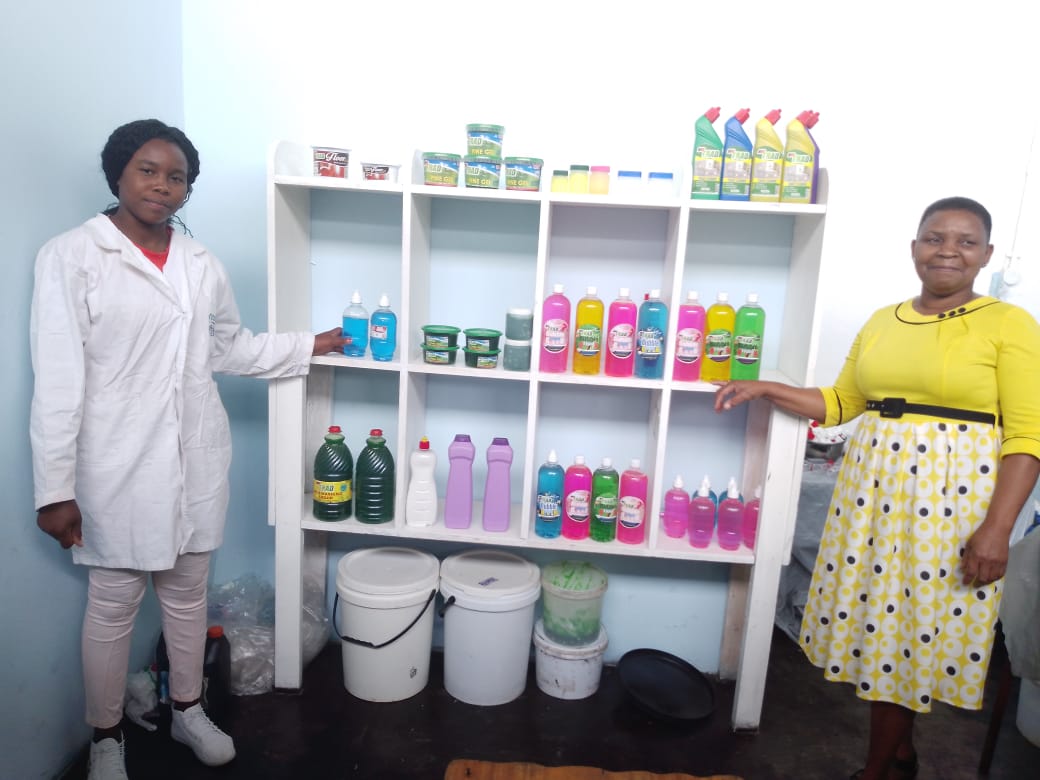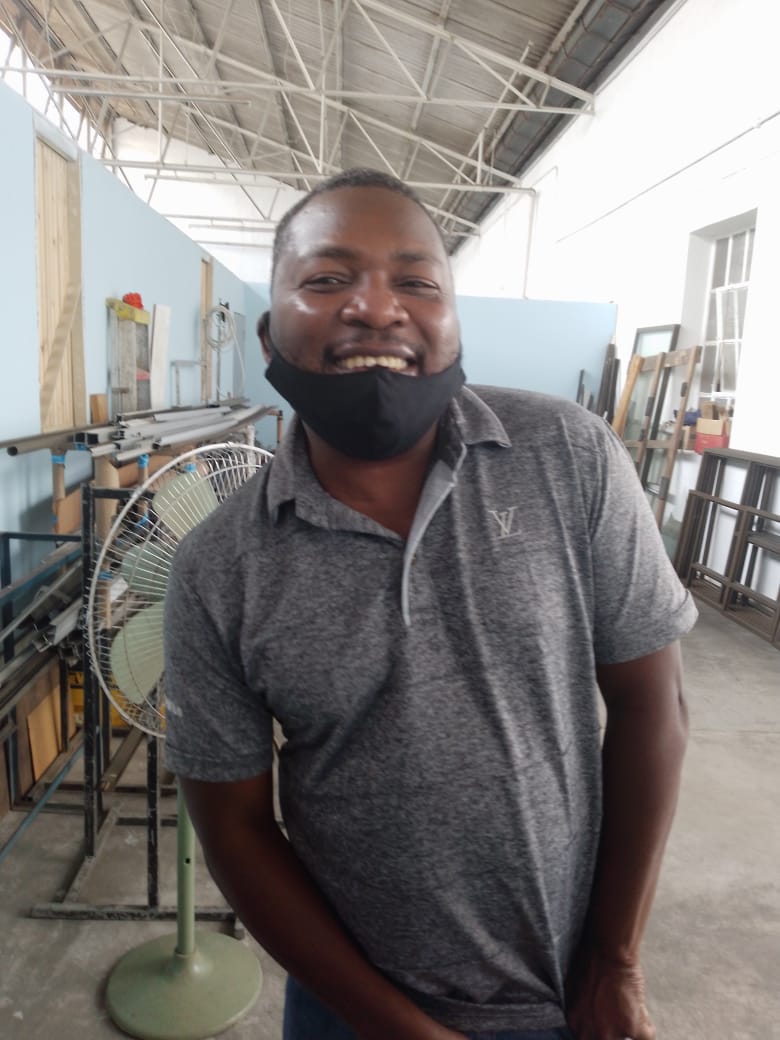|
Getting your Trinity Audio player ready…
|
The International Labour Organisation (ILO)’s Employment and Labour Market Governance Programme (EPLMGP) that brought together stakeholders like Old Mutual, the National and Social Security Authority (NSSA) and the Bulawayo City Council is leading small-to-medium enterprises (SMEs) to transition from the informal to the formal economy.
Addressing journalists who toured the recently refurbished Bulawayo SMEs Centre in the Belmont area of the city yesterday, Fortune Sithole, the ILO progamme assistant for Employment Creation and Labour Market Governance, said the project has achieved a number of positive outcomes.
“Under this project, we now have 78 SMEs that are employing more than 100 youths in Bulawayo. With a view to strengthening institutions, we partnered Old Mutual, NSSA, and the Bulawayo City Council. In the broader picture, more than 1000 youths are benefitting from this project,” Sithole said.
Dictor Khumalo, the Director of Housing of Bulawayo City Council revealed that ILO engaged the municipality to improve the workspaces for the informal sector.
“ILO also wanted to ensure that we manage the transition from informality to formality, enhance business development as well as improve the working conditions for informal sector workers. We also properly institutionalised structures in the informal economy and created the town planning, estate management and evaluation department that oversees informal sector workers in the city.
“Department workers underwent staff training. We also sent them on knowledge and experience sharing tours in other cities. Informal sectors workers under the programme were capacitated with entrepreneurial, business management and fundamental skills. We saw an improvement in compliance with registration requirements, rental payment and licensing fees payment,” Khumalo said.
There was also an improvement in the flow of information between the council and informal sector workers. The project also provided enabling infrastructure and an improvement in compliance with health and safety regulations among the SME players.
Lazarus Maoche, the NSSA Principal Occupational Safety and Health Promotions Officer for Matebeleland said prior to the refurbishment of the Bulawayo SMEs Centre, there were lots of hazards at the workplace.
“NSSA was roped into the project to ensure occupational safety and health. We provided first aid training on health hazards at the workplace. We embarked on a risk assessment process involving the informal sector workers. In the past, there was no adequate water to meet the standards of basic hygiene. To motivate workers to formalise their operations, NSSA provided tenders to workers with required documentation like the Procurement and Regulatory Authority of Zimbabwe (POTRAZ) registration certificates, and tax clearance certificates, to supply protective clothing like masks, and dust coats,” Maoche said.
Simbarashe Madivari, a clothing manufacturer who is a beneficiary, praised the ILO for encouraging him to acquire documentation for formalisation.
“With the required documentation, I responded to calls for tenders. I have been supplying big companies like Edgars and Jet Stores in partnership with some SMEs but my plan is to eventually stand on my own. Our work is negatively impacted by the influx of cheap second-hand clothes from China. While the clothes are low-quality, most of our customers buy from the Chinese because of the current economic hardships,” Madivari said.
Tinarwo Moyo, an aluminium fabricator used to work in the open and the work was affected by bad weather. He says he now enjoys working at the refurbished Bulawayo SMEs centre that has the best and conducive environment.
“The Bulawayo SMEs Centre is bringing positive results. We are getting more customers because this place is located in town. We have many walk-in customers. I supply windows, shop fronts, display counters, sliding and folding doors to SMEs plying their trade in the town. Ever since the refurbishment, the sales have gone up,”Moyo said.
Martha Maoche, the Director of Mao-Trade Company involved in making detergents and cosmetics at the Bulawayo SMEs centre is on cloud nine because she is now serving more customers at the refurbished site.

“Our clients are increasing. We are now supplying new customers including Ocean Supermarket, Haddon Sly, Alaska Supermarket, Induna Barracks Primary, and Brad Barracks Primary schools. We are expanding out of Bulawayo and now have a presence in places like Hwange and Plumtree,” Martha Maoche said.
It’s the same success story for Rebecca Bauleni, the Managing Director of Four Sisters Fashion. The SME is manufacturing school uniforms, men’s suits, women’s outfits, and corporate wear. Her clients include George Silundika and Northlea High Schools. She said she gained knowledge of bookkeeping and accounting from ILO training programmes.
Coustin Ngwenya, the Chairman of Bulawayo Chamber of SMEs said the journey to formalisation is a tough one but brings many benefits.
“The project has changed regulators’ perception of SMEs. Stakeholders like Old Mutual, NSSA and Bulawayo City Council are partnering the ILO to create a conducive working environment for informal sector workers. The good working conditions are attracting more customers because of it’s safer and welcoming,” Ngwenya said.
Retired Captain Dumile Sibanda, the SMEs Development Trust board member and administrator of Bulawayo SME Centre thanked the National University of Science and Technology (NUST) for coming up with good architectural designs that allowed the widening of the corridors. Before the refurbishment, 100 tenants were using only two toilets but now there are eight toilets for just 60 tenants.
He said 246 SME players are on the waiting list for similar apartments used by tenants at the Bulawayo SMEs Centre. He said there are plans to replicate the cemtre in other areas around the City of Bulawayo.
